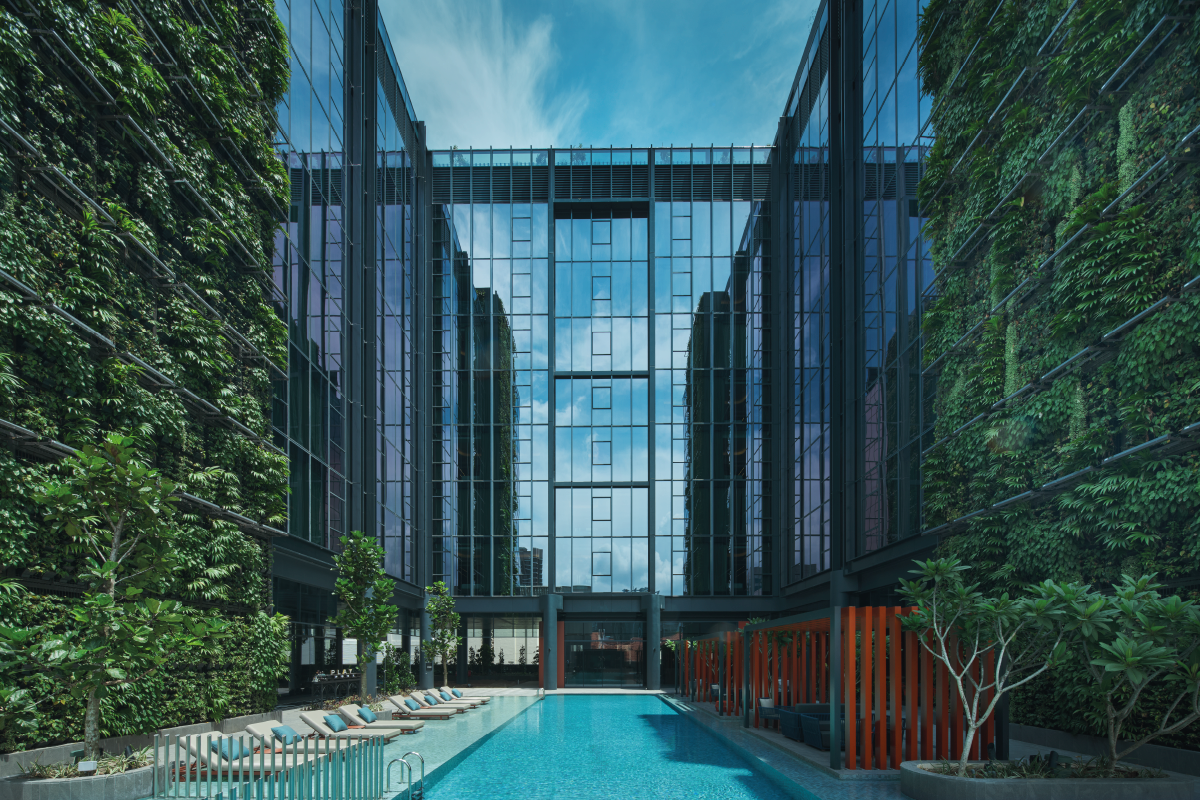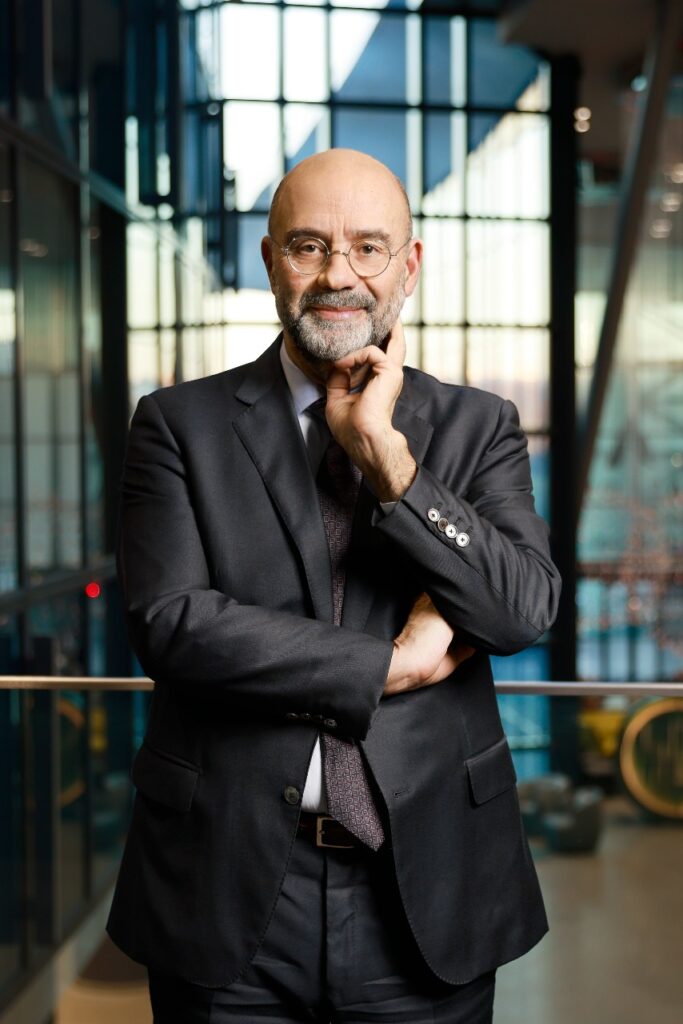Skift Take
The CEO of Accor’s new premium, midscale, and economy division discusses the strategy behind the hotel group’s restructuring, the importance of delivering on sustainability commitments, and why building scale in today’s hospitality landscape requires focus and specialization.
This sponsored content was created in collaboration with a Skift partner.
In the past year, Accor has streamlined operations across its portfolio to drive growth, improve operational efficiency, and deliver elevated hospitality experiences aligned with ever-evolving traveler preferences.
This structural transformation saw the creation of a new premium, midscale, and economy (PM&E) division, which includes popular brands such as Pullman, Novotel, ibis, and TRIBE, as well as conversion-ready brands like Mercure, greet, Mövenpick, and Handwritten Collection. In January 2023, Jean-Jacques Morin was appointed to lead this new division as CEO — in addition to his deputy CEO role — after previously serving as chief financial officer.
SkiftX recently sat down with Morin to discuss how his role has evolved since joining Accor in 2015, his key priorities for the new division, and his advice for hospitality executives to succeed in a rapidly evolving industry.
SkiftX: Why did it make sense to organize the group’s premium, midscale, and economy hotels within the same division? What are the strategic goals underpinning this change?
Jean-Jacques Morin: Accor experienced tremendous change over the past 10 years. Some of that transformation was about becoming asset-light — operating through management and franchise contracts, leaving the ownership of buildings and land to others — and some was about expanding our portfolio, both in terms of segment and geography.
Since 2013, we have tripled the size of our portfolio by acquiring brands such as Fairmont, Swissôtel, Raffles, Mantra, Mövenpick, and many more while also expanding our footprint outside Europe and tripling the number of brands we operate. In the span of 10 years, we went from 15 brands to 46 brands, ranging from ultra-luxury brands like Orient Express to economy brands like ibis.
We realized it was daunting to manage this diverse spectrum of brands with only one team. We needed to focus, so we put people with one set of skills on one side and people with another set of skills on the other side. Accor created this new PM&E division in January, along with a new luxury and lifestyle division. Sébastien Bazin is the CEO of Accor as well as the CEO of the luxury and lifestyle division. I’m the group deputy CEO and also the CEO of the PM&E division.
The PM&E division is a business of scale, so it is best managed by geography, with consistency and methodology. This division is the beating heart and heritage of Accor, with 21 brands and 90 percent of the hotels in Accor’s portfolio.
On the other hand, the luxury and lifestyle division is best managed by brand — the business is based on brand affinity and the one-of-a-kind experiences you can provide to your customers. It’s more like a startup, requiring a more customized approach, depending on the brand. Our lifestyle brands sit within Ennismore — such as Mama Shelter, 25hours, SLS, and Mondrian.
SkiftX: How did your previous role as Accor’s chief financial officer prepare you to lead the group’s PM&E division?
Morin: Because I worked as CFO, I intimately know the financial details of the company and can make decisions based on data. We spent the past eight years as architects of the change, helping transform Accor into an asset-light business, but now we’ve entered an exciting phase where we can focus on executing our strategy and delivering growth within that new model.
SkiftX: What are your key priorities for the PM&E division?
Morin: Accor has an amazing portfolio of brands with great recognition. Our network of midscale and economy brands is number one outside of the U.S. and China. However, this is not the case for our premium brands because we’ve been focused on midscale and economy since the company was founded in 1967, first with Novotel and then with ibis a few years later.
The premium category didn’t enter the picture until much later, with Pullman in 2007, Swissôtel in 2015, and Mövenpick in 2017. But if a well-known company like Accor can succeed in economy and midscale, we can also excel in the premium segment.
Regarding strategy, we’re already operating from a strong position in terms of brand diversity and geography. We’re prioritizing our most iconic brands because they contribute the most to the bottom line. Seven of our division’s 21 brands deliver 70 percent of the business. In terms of geography, we’re in 110 countries, but 30 countries make up 90 percent of the business.
In addition, we have more conversion brands than any other company in the world — conversion brands represent 50 percent of our new openings. One of our key priorities is to continue growing that side of the business. We know exactly where we can grow through scale and density, but we also need to prioritize the continuous improvement of our processes, tools, and people to stay ahead of the competition.
SkiftX: What regions have the greatest potential for growth and long-term profitability?
Morin: We see tremendous growth potential in China, as Skift explored with Gary Rosen, CEO of Accor Greater China, and in the broader Asian market. For the past 10 years, around 50 percent of Accor’s new developments have been in Asia and 25 percent in the Middle East. If you look at macroeconomic factors over the next several years, the middle class is driving growth in this region — and when people start traveling, they consume our products.
In Japan, which continues to experience a steady recovery as it welcomes back international travelers, we doubled our portfolio by partnering with Ebisu Resort LLC to renovate and rebrand the Daiwa Resorts portfolio into Grand Mercure and Mercure hotels.
We also see potential within India, now the most populated country in the world. Entering India has not been a walk in the park for most hoteliers, but we believe in the long-term growth potential of India.
Finally, the other place I would highlight is the Middle East, which has grown in influence since the pandemic. Saudi Arabia is investing heavily in tourism over the next 10 years, and Accor is well-positioned to be part of that growth acceleration.
SkiftX: How do you view the Americas in terms of growth potential?
Morin: The U.S. is the best market in the world because it has the highest density, with the highest average room rate. All of the largest players in hospitality have a significant presence in the U.S., so the market is getting saturated. In North America, we operate mostly in gateway cities like New York, Toronto, and San Francisco — and mostly within our luxury and lifestyle division, where our more distinctive properties can stand out within a crowded marketplace.
In terms of Latin America, we’re doing good business notably in Brazil, Argentina, Chile, and Colombia, but not yet to the tune of what I described in Asia or the Middle East. We’ve also seen growth in Mexico since the pandemic, particularly in the extended stay and all-inclusive categories.
SkiftX: What is your long-term vision for the division, and what challenges and opportunities do you need to navigate to get there?
Morin: Accor has undergone significant transformations every year, and we need to maintain agility to adapt to various brands and regions. Our top priority for the next few years is to deliver on the commitments we made during our Capital Market Day in June 2023.
After that, we’ll take a broader strategic view and continue addressing changes in customer behavior post-Covid, like increased interest in combining business and leisure into longer trips. We’re also looking at ways to enhance the hotel experience, such as offering more office space in our Pullman brand to align with customer preferences around hybrid working.
Sustainability is another crucial focus, especially in Europe, where there’s strong public awareness. We’ve developed a global framework for sharing information on sustainability and implemented measurement tools in our hotels to track our progress and help property owners understand their performance.
Technology is another significant differentiator for us in the future, especially around artificial intelligence. We face a dilemma between the FOMO (fear of missing out) and the FOGI (fear of getting in) when it comes to adopting new tech.
Both sustainability and technology are costly and challenging, but they are essential for our medium-term strategy.
SkiftX: What advice can you share with other hospitality executives looking to balance business needs with evolving consumer expectations?
Morin: Curiosity is essential. Many companies struggle because they resist change, particularly technological change. The fear of trying something new when the current way works well can be detrimental. To thrive, you must maintain curiosity, agility, and a desire to explore new things.
In the modern world, people no longer stay with one company for their entire career. They often switch between different roles and industries. The key is the ability to continuously learn and adapt. This adaptability and willingness to reinvent oneself are crucial for success in the future.
Learn more about Accor’s brand portfolio.
This content was created collaboratively by Accor and Skift’s branded content studio, SkiftX.
Have a confidential tip for Skift? Get in touch
Tags: accor, hotel management, marketing, SkiftX Showcase: Hospitality


